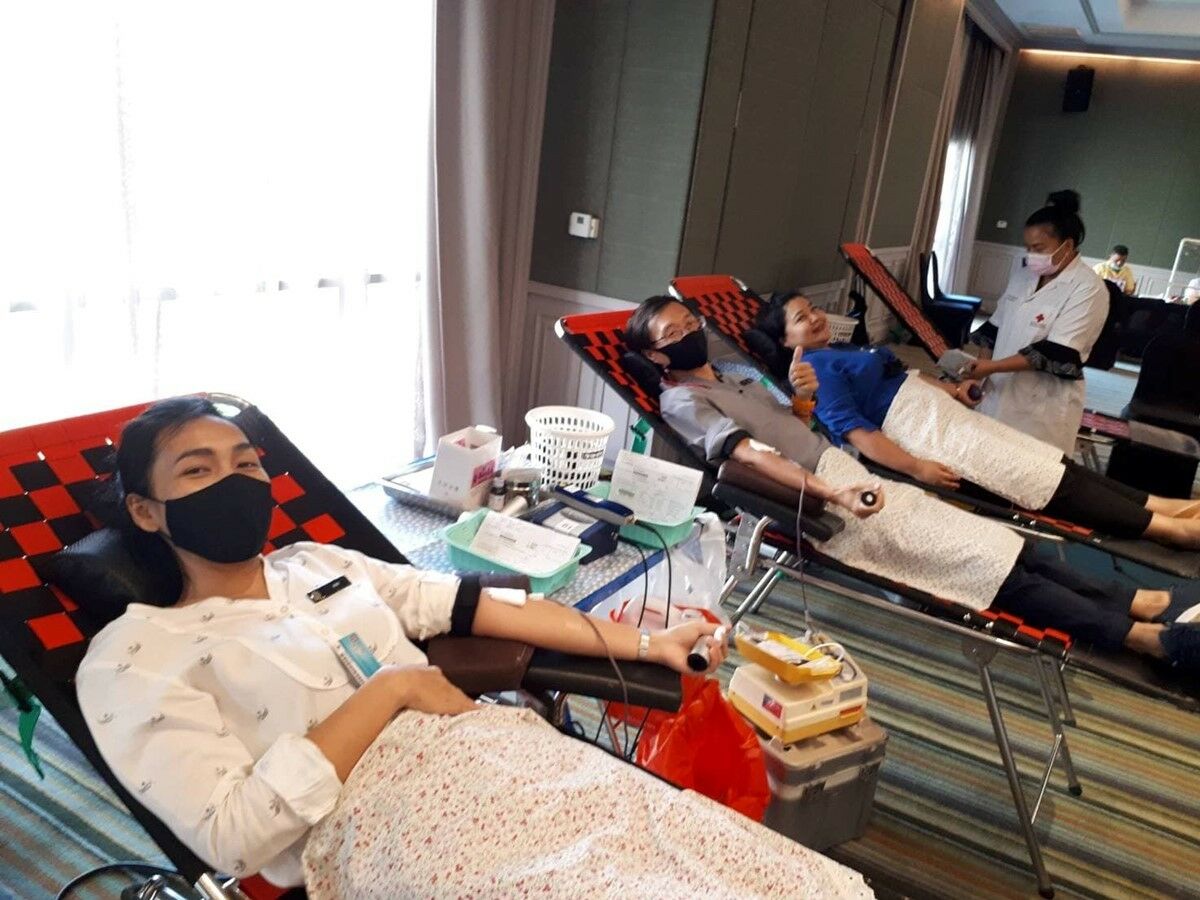Crimson crisis: Phuket’s urgent Rh-negative blood donation plea

Phuket is in the grips of a crimson crisis as the bustling tourist High Season unleashes a surge of road accidents, putting the squeeze on blood supplies for life-saving emergencies.
In response, the Phuket branch of the Red Cross Society and Vachira Phuket Hospital are ramping up their efforts to boost blood reserves, particularly with a call for the desperately needed Rh-negative blood, primarily found in foreign donors.
While the lion’s share of Thai donors supply Rh-positive blood, the elusive Rh-negative type is as rare as a cool breeze in Phuket’s hot season. A meagre 0.3% of Thais possess this blood type, compared to a hearty 15-16% among Europeans.
Vincent Modell, a beacon of hope among the Rescue Team Volunteers Phuket, and an Rh-negative contributor himself, stressed the need for regular donations.
“The people of Phuket are absolutely amazing, always ready to help. But when it comes to emergencies, even minutes count. To have blood of all types on hand at the regional Red Cross Blood Bank (Phuket RBC), regular donations are key.”
Rh-negative blood types are scarce across Asia, with only up to 2% of the local populace having this type, while in Europe, especially the northern parts and among the Basques in France and Spain, it can soar to 30%.
To tackle this pressing predicament, the Phuket Red Cross is rolling out a series of mobile blood-donation drives all through November. The first stop: Makro Thalang on 5 November, from midday to 4pm.
Other key locations include Princess Srinagarindra School and Patong Bay Hill Resort on 7 November, with further drives at Phuket Airport, The Pavilions Phuket, and Lotus’s on subsequent days.
In tandem, Vachira Hospital is hitting the road with its donation events, setting up shop at The Royal Paradise Hotel in Patong tomorrow, November 5, Chalong Hospital on Wednesday, November 6, and visiting spots like Le Meridien Phuket Beach Resort, Boat Lagoon, and Kathu Wittaya School as November unfolds.
Would-be lifesavers can make their way to the Phuket Regional Blood Centre at 38/193 Rattanakosin 200 Pi Rd in Talad Neua, Phuket Town. The centre welcomes donors Monday, Wednesday, and Friday from 8.30am to 4.30pm, and stays open late on Tuesday and Thursday from 8:30am to 8pm, with weekend and public holiday hours from 9am to 3pm.
More information is just a call or a click away: reach out to the Phuket Red Cross at 076-251178 or 081-9588854, or pop by their Facebook page, Phuket Red Cross Blood Donation Center.
The Blood Bank at Vachira Phuket Hospital, located on the fourth floor of the outpatient building on Yaowarat Road in Phuket Town, is standing by 24/7, with details available via 076-361234 ext 1287 or their Facebook, ธนาคารเลือด รพ.วชิระภูเก็ต (Vachira Phuket Hospital Blood Bank).
What Other Media Are Saying
- PhuketDir highlights the urgent need for Rh-negative blood donors in Phuket, emphasising the rarity of this blood type and its critical demand among foreign accident victims during peak tourist seasons. (read more)
Frequently Asked Questions
Here are some common questions asked about this news.
Why is Rh-negative blood so rare in Thailand compared to Europe?
Genetic diversity and historical migration patterns contribute to the lower prevalence of Rh-negative blood in Asian populations.
How does the tourist season impact blood donation needs in Phuket?
Increased road accidents during peak tourist season escalate the demand for blood, especially rare types like Rh-negative, for emergencies.
What if there was a global registry for rare blood types?
A global registry could expedite matching donors with recipients, improving access to rare blood types in emergencies worldwide.
How can regular blood donations influence emergency medical care in Phuket?
Consistent donations ensure a steady supply, reducing fatal delays in transfusion situations and enhancing emergency care readiness.
What strategies might increase Rh-negative blood donations in areas with shortages?
Targeted awareness campaigns, incentives for foreign donors, and international collaboration could boost Rh-negative blood donations.
Latest Thailand News
Follow The Thaiger on Google News:


























